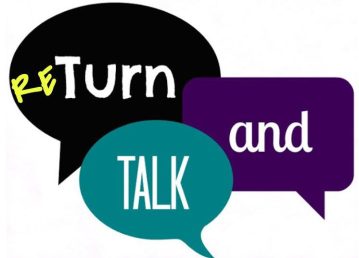This summer, we’d like to return and talk about some of our most useful, engaging, or popular posts. Today’s post, written by Amy in 2014, reminds us why we, as teachers, make the decision to have a readers-writers workshop classroom.
Please return to this topic and talk with us in the comments–why do you choose workshop?
 Attending the University of New Hampshire Literacy Institute for the past two summers has been one of the best blessings in my teaching career. I’ve remembered what it means to be a student, replete with pages and pages of reading assignments, almost nightly research papers, and the expectation that I will participate in class.
Attending the University of New Hampshire Literacy Institute for the past two summers has been one of the best blessings in my teaching career. I’ve remembered what it means to be a student, replete with pages and pages of reading assignments, almost nightly research papers, and the expectation that I will participate in class.
Sure, I earned graduate credit, but more importantly, I sat as a student. I remembered what it feels like to have a teacher present a task, encourage a discussion, require I read something. I remembered what it means to be the learner. And I wanted to learn.
I think all students want to learn. I also think that many of them do not know how.
Last week I met with my new friend Holly. We shared ideas about our plans for August and how we will more fully implement readers/writers workshop in our classrooms. We discussed what it means to struggle as a student in an English class where English is not our first language, and reading books is a new idea, and the lack of food in our home is just one component of the lack of security we feel every single day. We talked about what it must feel like to these children to fail state tests year after year. Because they do. Holly will be teaching 10th grade for the first time, and her ESL background will benefit her students immensely. I will be teaching AP English Language, and all my students will be in the AVID program. I am convinced the AVID philosophy is one every teacher should embrace:
Hold students accountable to the highest standards,
provide academic and social support,
and they will rise to the challenge.
It’s a philosophy every good teacher I know applies in his classroom. It’s also why so many of us choose the pedagogy of Readers and Writers Workshop. Our high standards might be the same for all students, but the support we must give to help them rise to the various challenges with reading and writing must be individualized. Their needs are different; therefore, we must differentiate.
One-on-one reading and writing conferences become daily events.
We encourage, and nudge, and teach the skills that a student needs at that moment, during that task. This is authentic instruction. And it invites authentic learning.
As I think about this new school year on a new campus in a new district with new colleagues, new administrators, and new schedules (block days versus the traditional eight period days), I want to remember what it feels like from the student perspective.
“I need you to notice me, support me, show me how to learn.”
I had a colleague ask me recently, “Which is harder to plan: teaching the traditional way with teachers making choices, or your way with students making the choices?”
I should have said, “Is that really the right question?” which would have been a better response than the one I gave him.
It is hard work being a teacher in a workshop classroom. I have to know my students. I have to talk with them and know what they do with their time outside of school, who their friends are, what their dreams are for after high school. I have to be a reader, and I often have to read books I’d never read except to try to match the right book with a student who hates reading. I have to allow choice in topics, and get used to feeling uncomfortable. I have to give up control, and let teens be real in an environment that invites their opinions, and sometimes their scorn. I have to write in front of them and show my vulnerability. They have to see me struggle because all writers do. I have to love moving students as readers and writers because ultimately, if I am their English teacher, and I am not moving readers and writers, I am not doing my job.
Is it hard? Absolutely.
But here’s the thing: It’s really not a ‘have to’ as much as it’s a ‘get to.’
“Simple can be harder than complex: You have to work hard to get your thinking clean to make it simple. But it’s worth it in the end because once you get there, you can move mountains.” ~Steve Jobs
“It’s all very simple. But maybe because it’s so simple, it’s also hard.” ~Natuski Takay

Oh, yes — totally nostalgic. When I saw tweets with #UNHLit16 this morning, I teared up. I’m just a bit jealous of everyone else filling their writer’s notebooks in NH this summer. I hope I feel as fed and renewed as I march into fall as I have for the past three years with UNH fueling me.
LikeLike
I know!!! Betsy is killing me with her Durham-area tweets and her teasers about Penny and Kelly’s workshop. Augh!!
LikeLiked by 1 person
Getting to work with teens every day is definitely a “get to,” Amy. I love your wisdom here. It makes me so nostalgic for UNH and that very first class with Penny, Jackie, Erika, Emily, Sam, Will, Pat, Betsy, and all our other book loving friends.
LikeLiked by 1 person